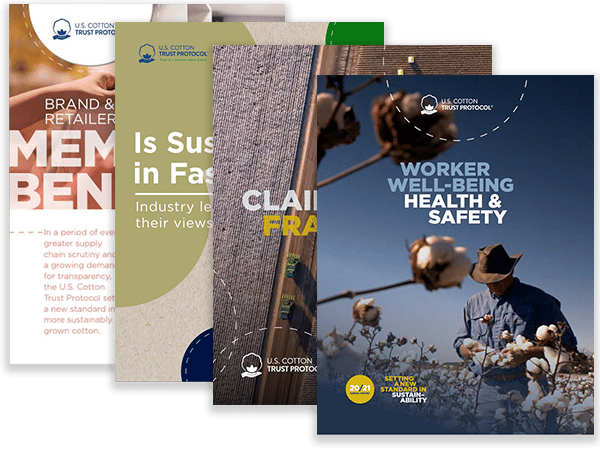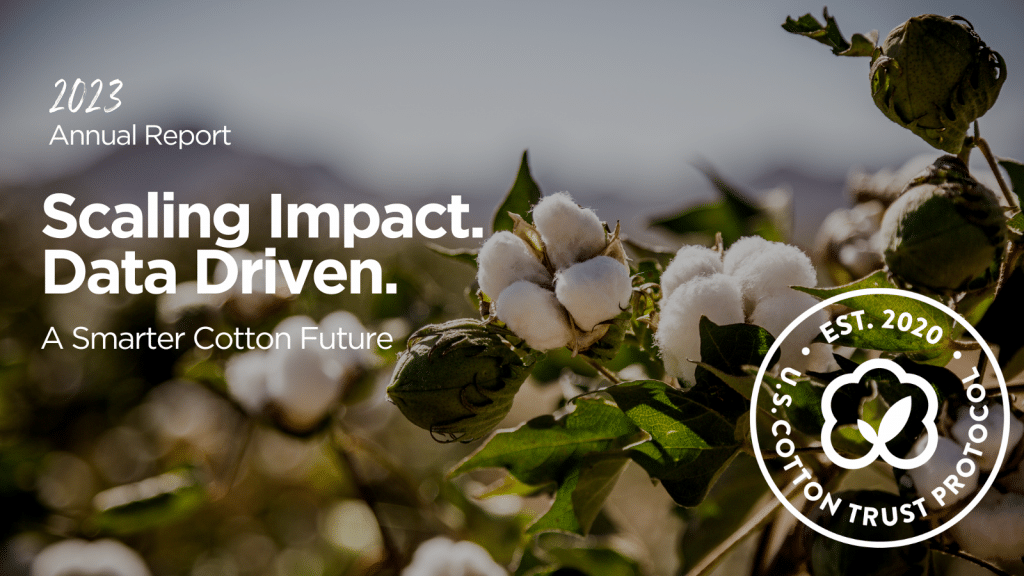Powered by Data
Sustainability is a journey and continuous improvement is in everything we do. However, as protecting and preserving the planet is becoming ever more important, there is significant value in consistent data measurement. As the saying goes, you can’t improve what you don’t measure.
The Trust Protocol will measure and report annually against the 2025 National Goals for Continuous Improvement metrics, using the 2015 Ag districts reports as a baseline.
Explore our data from 2022/23 below.
Robust Data From the Field
All Trust Protocol grower members enter data from their fields on key sustainability metrics for that crop year, and all data collected is then aggregated. Individual data or information is never shared.
The Trust Protocol focuses on six key sustainability metrics – water use, energy efficiency, land use, soil health, soil carbon and greenhouse gas emissions. The program’s data collection and verification process contains multiple stages but starts when each grower member answers a self-assessment which is regionalized and classified by irrigated and non-irrigated practices. After growers complete all steps of enrollment, the program provides data in aggregate form. Growers are then able to understand how they compare to their regional, state and national metrics, and are able to adjust their practices as such. The program gives them the opportunity to understand how they measure, and therefore improve.
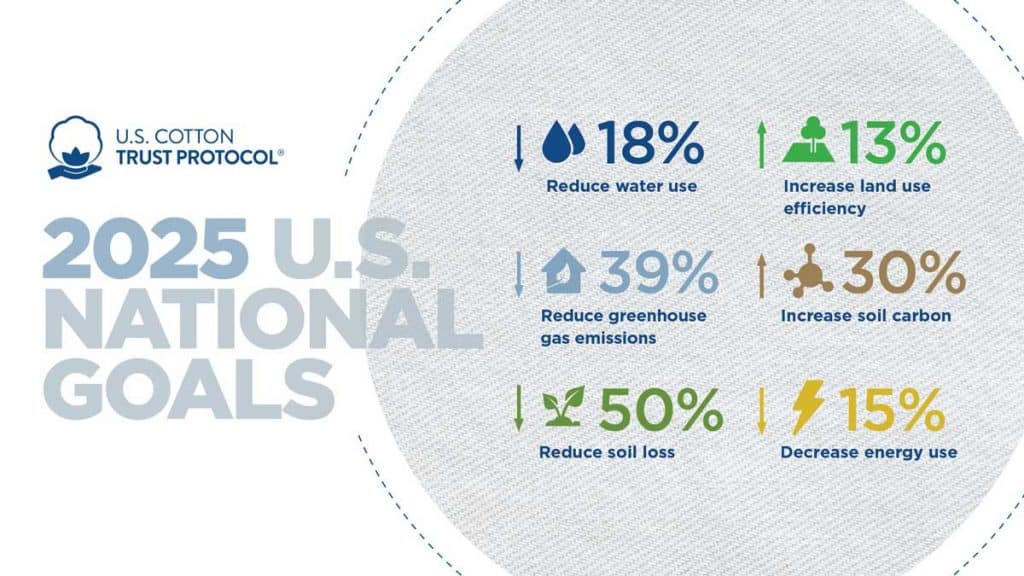
Data for the 2022/23 year highlights how Trust Protocol grower members are continuously improving, implementing sustainable practices, and are on target to meet or exceed the 2025 National Goals.
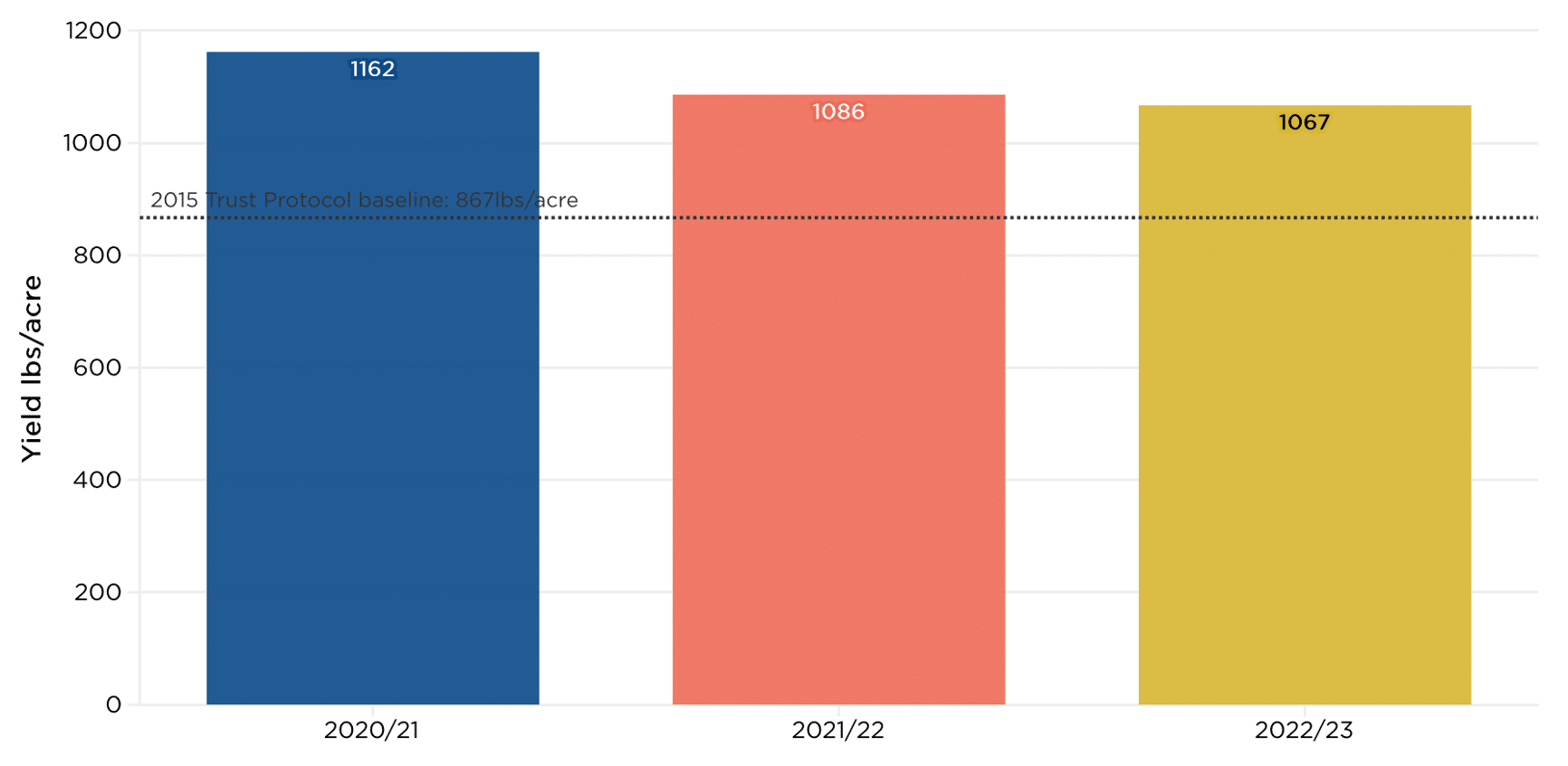
Land Use Metrics
The 2025 National Goal is a 13% increase of land use efficiency. The 2015 baseline was 48 square feet required for producing a pound of cotton. In 2022/23, Trust Protocol grower members used 43 square feet, a 10% improvement per pound of cotton fiber produced meeting the 2025 National Goal on land use efficiency.
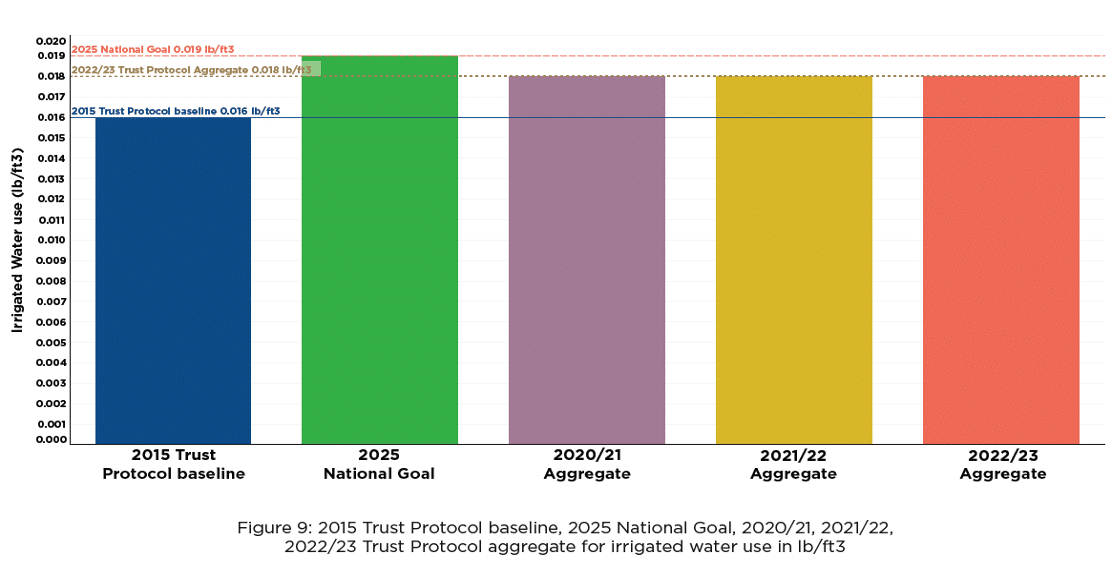
Water Use Metrics
There are many misconceptions about water use in cotton production. In fact, two thirds of cotton produced in the U.S. is not irrigated, and is grown only using natural rainfall. The 2025 National Goal for water use is to increase efficiency by 18%. In 2022/23, Trust Protocol grower members increased their water efficiency by 14% compared to the 2015 baseline, putting them on track to meet the 2025 goal.
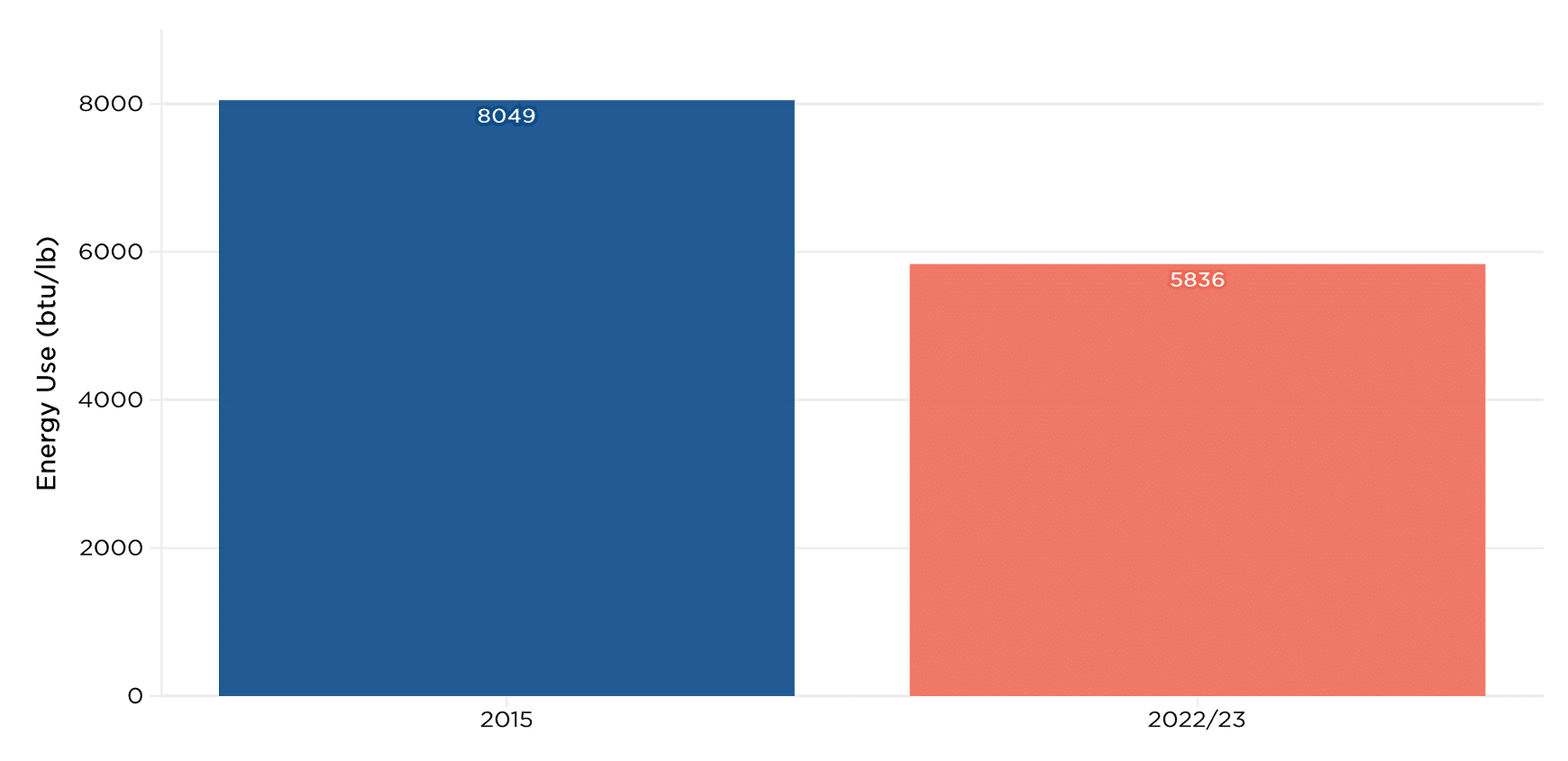
Energy Use Metrics
The 2025 National Goal for energy use is a decrease of 15%. In 2022/23, Trust Protocol growers reduced their energy use 27% compared to the 2015 baseline. Therefore, Trust Protocol grower members have reduced their energy use more than the 2025 goal.
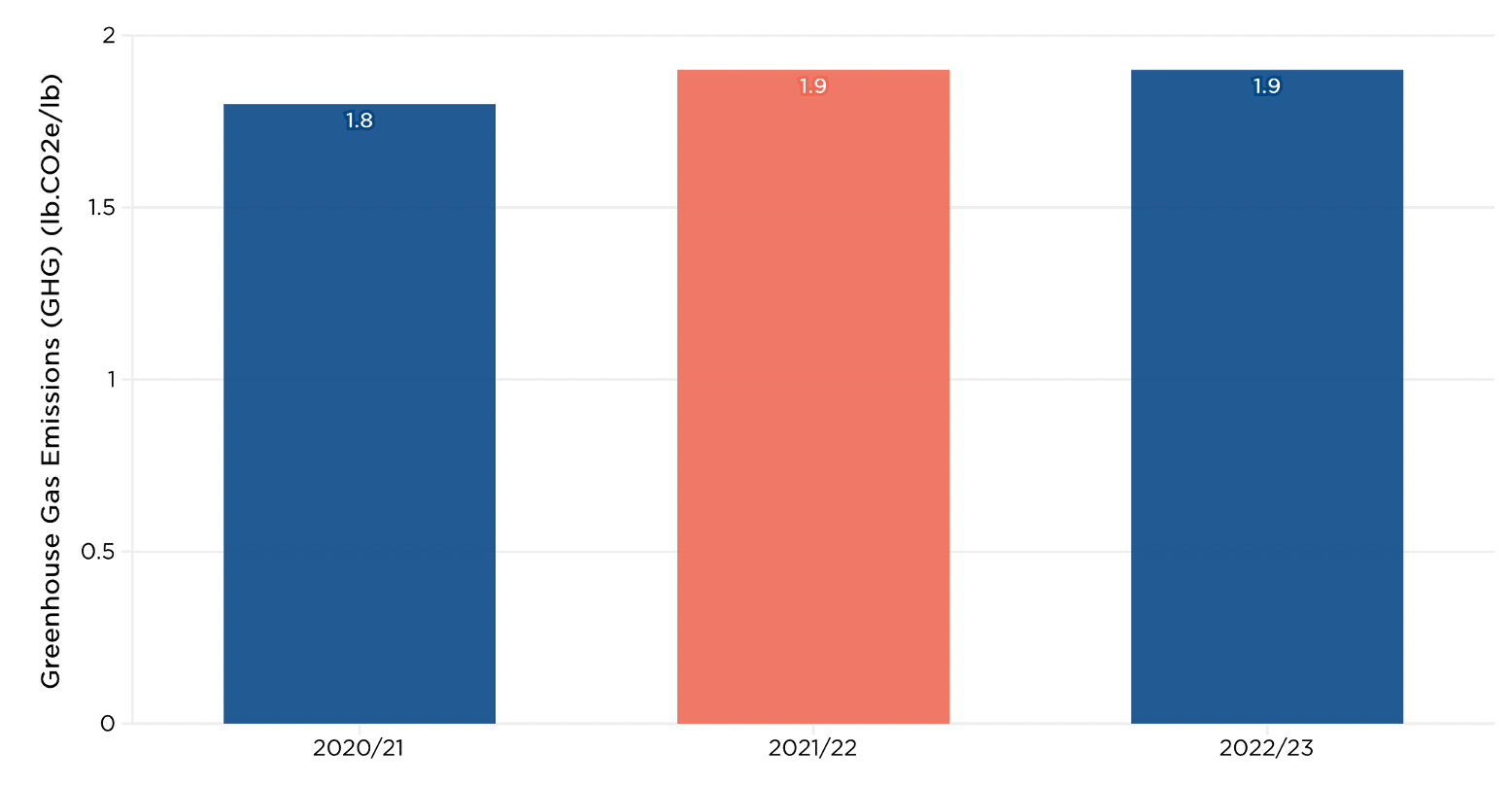
Greenhouse Gas Emissions Metrics
The 2025 National Goals for greenhouse gas emissions is a reduction of 39%. Relative to the 2015 baseline, the 2022/23 Trust Protocol grower members showed improvement by reducing greenhouse gas emissions by 21% as they work to reach the 2025 goal.
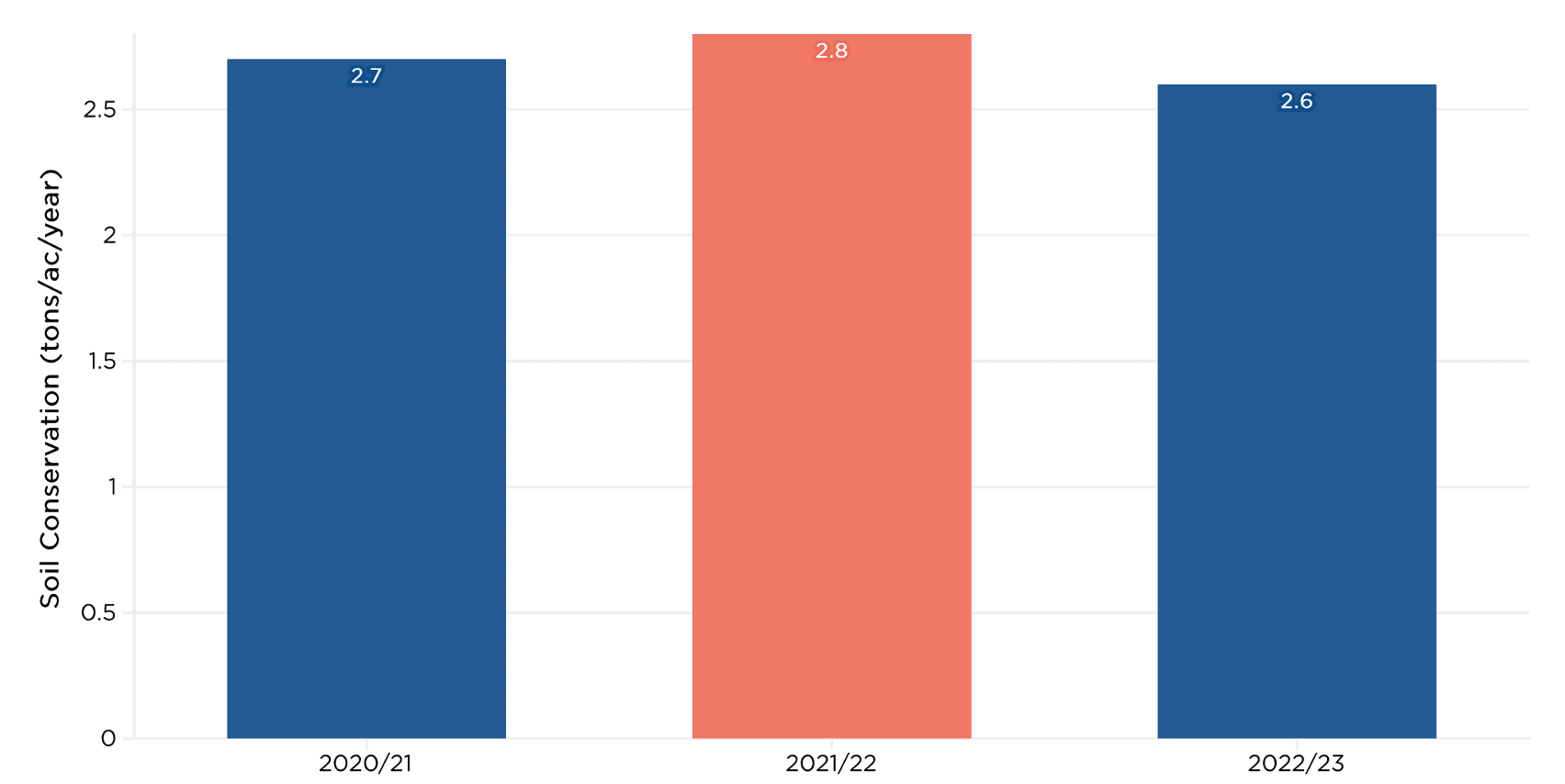
Conservation Metrics
The 2025 National Goal for soil loss is a reduction of 50%. In 2022/23, Trust Protocol grower members reduced their soil loss by 79% compared to the 2015 baseline meaning they have surpassed the 2025 goal. Trust Protocol grower members are adopting new techniques to improve soil health with the hope of further increasing efficiency to reduce soil loss.
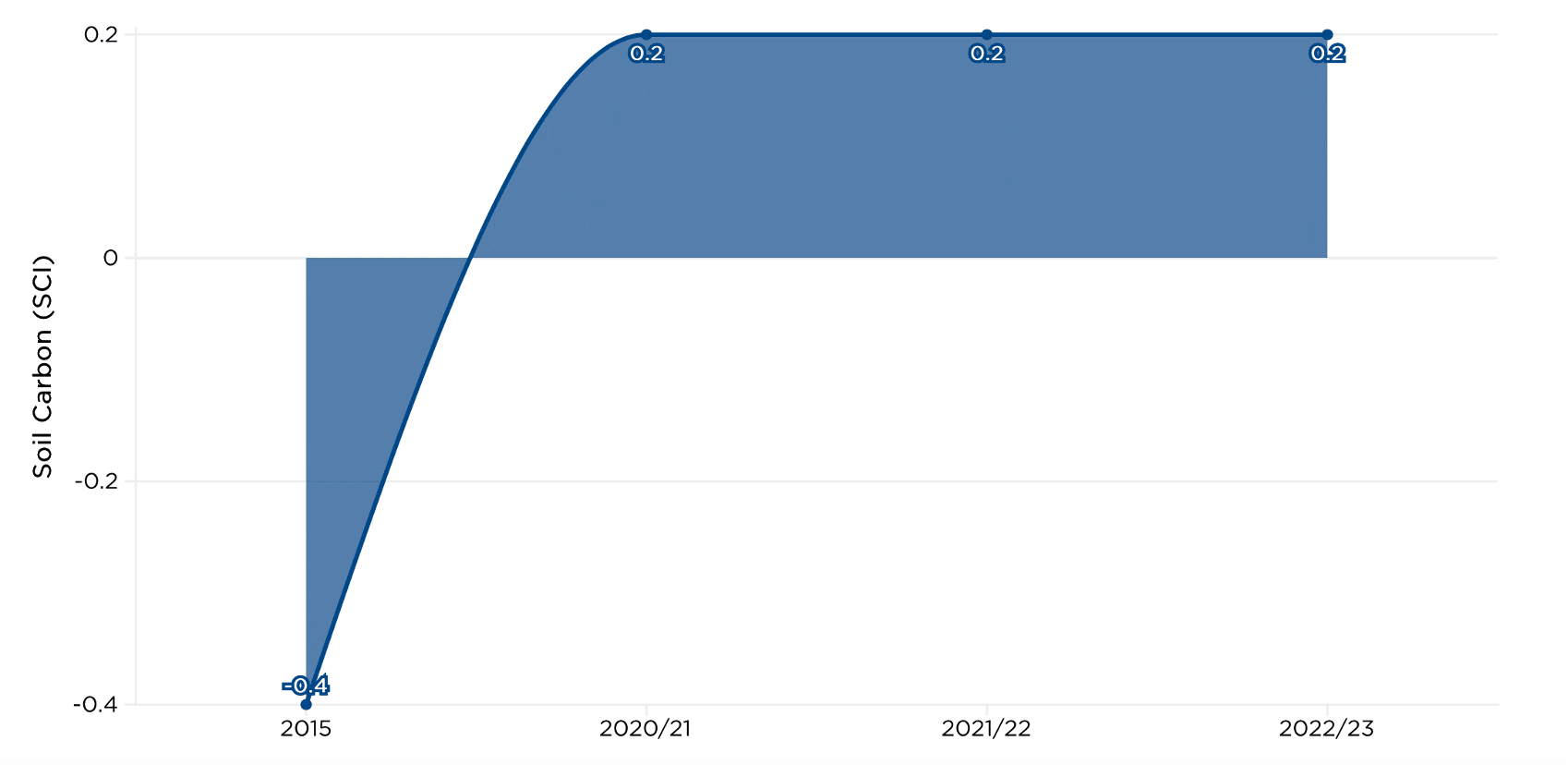
Soil Carbon Metrics
Soil carbon metrics are calculated by a USDA Natural Resources Conservation Service (NRCS) tool, the Soil Conditioning Index (SCI). SCI index ranges from -1.0 to +1.0. If the calculated index is a negative value, soil organic matter levels are predicted to decline and if the index is positive value, soil organic matter levels are predicted to increase. The 2025 National Goal for soil carbon is to focus on 30% of grower members to be in positive SCI improvement. For the 2022/23 crop year, 83% of Trust Protocol grower members had a positive index value, meaning the soil health was well maintained.
Setting A New Standard In Sustainability
2023 Annual Report
If you’re interested in learning more about the Trust Protocol’s important work to date, and what comes next, download our 2023 Annual Report
